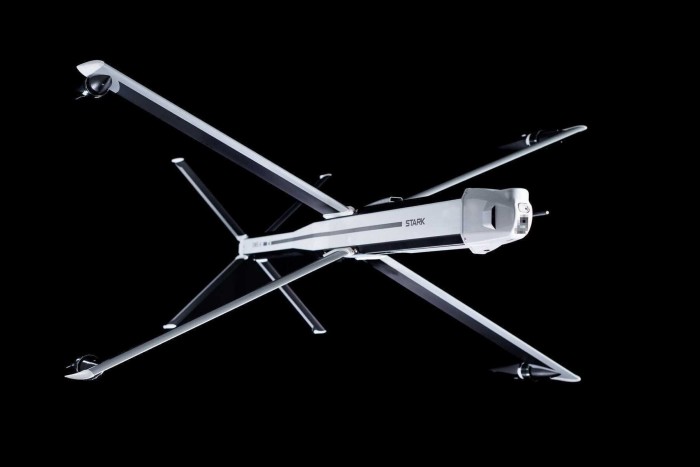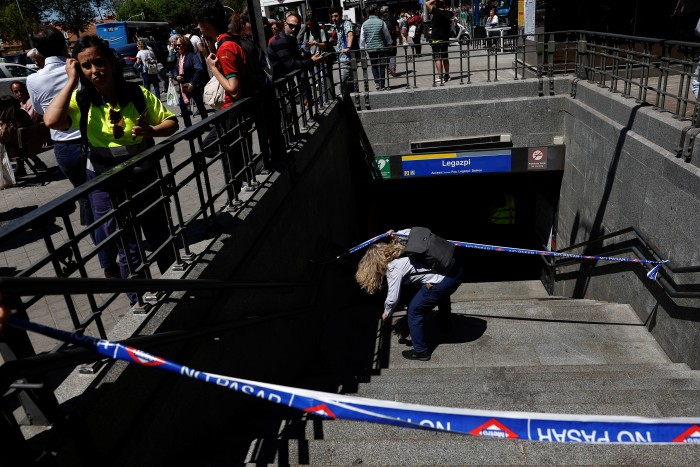Fully autonomous strike drones within technological reach, says German start-up

Unlock the Editor’s Digest for free
Roula Khalaf, Editor of the FT, selects her favourite stories in this weekly newsletter.
The era of fully automated strike drones are within technological reach, according to German drone start-up Stark, as the race to develop weapons capable of selecting and striking targets independently heats up.
The war in Ukraine has accelerated investment in drone technology, with some companies touting their precision and lethality at a fraction of the cost of tanks or missiles. Many unmanned systems can already navigate autonomously and track moving targets, but Philip Lockwood, managing director of Munich-based Stark, said the deployment of next generation drones — that do not require human approval to pick and hit targets — was “not far off”.
While the EU has expressed support for banning fully autonomous weapons, it has yet to legislate on the issue, and efforts to reach an international treaty through the UN have made slow progress.
But Lockwood, who previously headed innovation at Nato, warned other regions may have fewer qualms about deploying such weapons.
“I think that we should be concerned that our adversaries like Russia and China [ . . .] are not going to have concerns about how these systems are used,” he said.
The warning comes amid the rapid evolution of artificial intelligence on the battlefield in Ukraine, where many systems use autonomous navigation and AI software to chart their own paths, resist jamming, and track moving targets.
US-based Anduril has emerged as one of the biggest beneficiaries from the rising demand for new technologies. Hundreds of its Altius-600M drones have been bought by the Pentagon and sent to Ukraine’s front-line. Other companies include Turkey’s drone manufacturer Baykar.
In Europe, aside from Munich-based rival Helsing and reconnaissance drone maker Quantum Systems — founded by Florian Seidel, who is also behind Stark — start-ups in the space that have been trying to raise their profile include Tekever, which builds drones for intelligence and surveillance.
Stark’s first drone launched last week, the OWE-V, embeds software that allows it to make real-time decisions to avoid other warfare systems. It can also launch vertically and strike targets up to 100km away.
Lockwood said the company had controls in place to ensure a human was “in the loop” on any decisions made. “We’re not comfortable at this stage reducing those controls,” he said.
Traditional arms manufacturers have pushed back against their new rivals’ claims that drones — which can cost as little as a few thousand euros to hundreds of thousands — will allow governments to replace some big-ticket arms expenditure.
“Drones are not a game-changer. The current discussion suggests that drones alone can win a war — that is definitely not true,” Armin Papperger, chief executive of munitions maker Rheinmetall said last month.
But drone start-ups are confident they can tap into rapidly growing defence expenditure in Europe. Stark, which also has offices in Berlin and Kyiv, does not see a threat to its business from a potential end to the Ukraine war, and the daily destruction of weapons on European soil.
“There is going to be a distrust of Russia for many, many, many long years — potentially generations,” Lockwood said.





